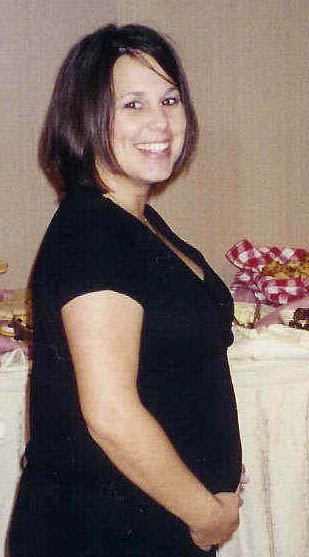
WASHINGTON (BP)–The U.S. Senate has approved legislation recognizing an unborn child as a victim in a federal crime but only after defeating a crippling amendment by one vote.
Senators voted 61-38 for the Unborn Victims of Violence Act March 25. The bill treats an unborn child as a crime victim when he or she is injured or slain during the commission of a federal offense against a pregnant woman. Though 29 states have laws that recognize the illegal killing of an unborn child as murder in at least some cases, federal law has not treated an unborn child as a victim when he or she dies as a result of an assault against or murder of the mother.
That will change when President Bush signs the UVVA into law, which, after the Senate vote, he reaffirmed he looked forward to doing. The U.S. House of Representatives already has passed the measure.
“Pregnant women who have been harmed by violence, and their families, know that there are two victims — the mother and the unborn child — and both victims should be protected by federal law,” Bush said in a written statement applauding the Senate’s action. “We must continue to build a culture of life in our country, a compassionate society in which every child is welcomed in life and protected by law.”
Richard Land of the Southern Baptist Ethics & Religious Liberty Commission called the vote “a significant step forward in reasserting the legal rights of human persons to the unborn.”
“It is yet one more indication that we are slowly but surely winning the battle for the hearts and minds of the American public when it comes to the personhood of unborn human beings,” said Land, the ERLC’s president. “We should draw inspiration from this victory to strengthen our resolve to move forward and not rest until every unborn child has the same protections under the law that each of us possess.”
While pro-life advocates and even some pro-choicers backed the measure, abortion-rights senators and organizations continued to decry it, fearful its recognition of the rights of the unborn would undermine the Supreme Court’s 1973 ruling in support of abortion.
The UVVA “is not intended to protect pregnant women from domestic violence or punish individuals who harm them,” said Gloria Feldt, president of the Planned Parenthood Federation of America. “It is part of a deceptive anti-choice strategy to make women’s bodies mere vessels by creating legal personhood for the fetus.”
The legislation gained Senate approval only after barely surviving an attempt to substitute an amendment that would have killed the bill, as far as supporters were concerned. Sen. Dianne Feinstein, D.-Calif., proposed an amendment that supposedly was designed to strengthen penalties in crimes against pregnant women. It did not recognize the unborn child as a victim, however.
The Senate rejected Feinstein’s amendment 50-49. It also turned back an amendment by Sen. Patty Murray, D.-Wash., related to domestic violence that was perceived by the bill’s supporters as an attempt to kill the legislation. The vote against her proposal was 53-46.
Sen. John Kerry, the presumptive Democratic nominee for president from Massachusetts, voted for Feinstein’s amendment and then against passage of the bill.
In the critical vote on Feinstein’s amendment, Sen. Joseph Biden, D.-Del., was the lone senator not voting, though he later voted against final passage. Four Republicans joined 44 Democrats and independent James Jeffords of Vermont in supporting Feinstein’s proposal: Sens. Lincoln Chafee of Rhode Island; Arlen Specter of Pennsylvania and Susan Collins and Olympia Snowe, both of Maine. Three Democrats joined 47 Republicans in opposing the amendment: Sens. John Breaux of Louisiana, Zell Miller of Georgia and Ben Nelson of Nebraska.
On final passage, Chafee and Snowe were the only GOP members to vote against the bill. Thirteen Democrats joined 48 Republicans in voting for the measure.
Although pro-lifers provided strong support for the bill, Senate Majority Leader Bill Frist, R.-Tenn., who worked at length to bring it to the floor for a vote, denied the legislation is about abortion.
“It doesn’t undermine the 1973 Roe v. Wade Supreme Court decision, as even pro-choice legal scholars admit,” Frist said on the floor after the vote. “The Unborn Victims of Violence Act is about simple humanity, simple reality. A child in the womb, whether you call it a baby or a fetus, is alive, it is real and it deserves our best efforts to protect it from criminal harm….”
The House approved the measure in a 254-163 vote in late February, marking the third time it had passed such legislation. The House also approved an unborn victims bill in 1999 and 2001. It was the first time the Senate had voted on such a measure.
Democratic opponents of the bill had delayed floor consideration in the Senate, but it was announced March 12 Frist had finally gained agreement to bring it to the floor for a vote.
The Senate adopted the House-approved version, H.R. 1997, which also is known as Laci and Conner’s Law. It is named after Laci Peterson and her unborn son, who were killed in December 2002 allegedly by her husband, Scott. Sharon Rocha, Laci’s mother, has urged Congress to adopt the measure.
Rep. Melissa Hart, R.-Pa., was the chief sponsor of the House bill. Sen. Mike DeWine, R.-Ohio, sponsored the Senate version.
(The votes of each senator on the amendments and final passage may be accessed at www.senate.gov by clicking on “Legislation & Records,” then “Roll Call Votes.”)
–30–
(BP) photo posted in the BP Photo Library at http://www.bpnews.net. Photo title: LACI PETERSON.

















